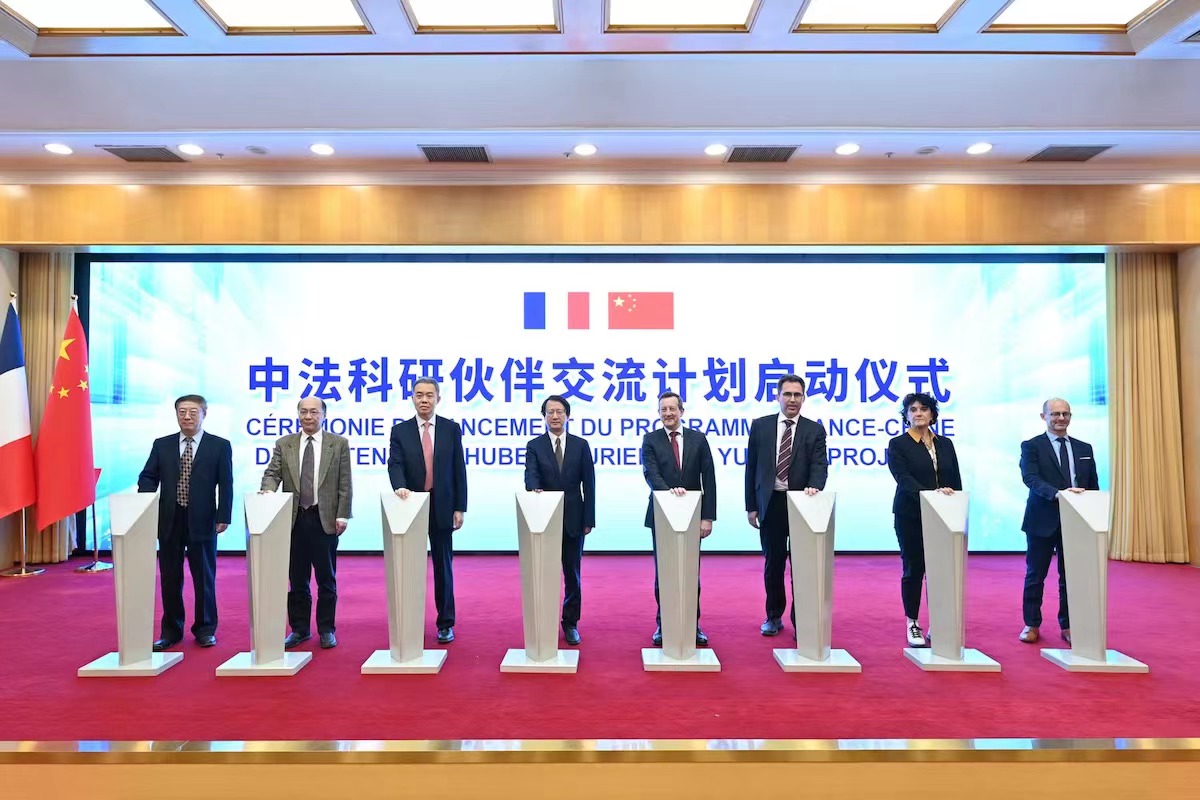
Chinese Ministry of Science and Technology?(MOST)?and the French Embassy in China jointly launched an exchange program for scientists and researchers from both countries on May 23.?(PHOTO:?MOST)
By?Staff?Reporters
France was the first major Western country to sign an intergovernmental agreement on science and technology cooperation with China in 1978. Since then the bilateral sci-tech cooperation has been deepening in terms of people-to-people exchanges, basic research and high-tech cooperation. In the past 10 years since the 18th CPC National Congress, the two sides have carried out major projects, expanding the areas of cooperation and achieving fruitful results in several fields.
In the field of civil nuclear power, Taishan Nuclear Power Plant Unit 1 was successfully connected to the grid in June 2018, becoming the world's first nuclear power plant applying a third-generation reactor, fully demonstrating the cooperation between China and France in nuclear power engineering technology.
In space science, China and France successfully launched a maritime satellite in October 2018 after 13 years of collaboration. The satellite, named China-France Oceanographic Satellite, is the first in the world that can monitor ocean surface winds and waves at the same time, which helps people better understand the interaction between the oceans and atmosphere, to model and tackle climate change.
During French President Emmanuel Macron's visit to China this April, the two sides reached consensus to deepen cooperation in such fields as agrifood, space, aviation, civil nuclear energy, and foster new cooperation areas including trade in services, green development and innovation in science and technology, and support the joint development of a carbon neutrality center and joint cultivation of talent.
To implement the consensus reached in joint cultivation of talent, Chinese Ministry of Science and Technology and the French Embassy in China jointly launched an exchange program for scientists and researchers from both countries on May 23.
Wang Zhigang, minister of science and technology, said, "We hope this program will encourage more Chinese and French research teams to participate in sci-tech exchanges and cooperation, and encourage institutions to establish joint laboratories and other long-term cooperation platforms."
The trio will conduct a series of experiments in fields such as life science, fluid physics, combustion science and materials science. Notably, this is the first time that fruit flies have been taken on a Chinese space mission as experimental subjects. What made scientists choose fruit flies? What experiment will they undergo?
